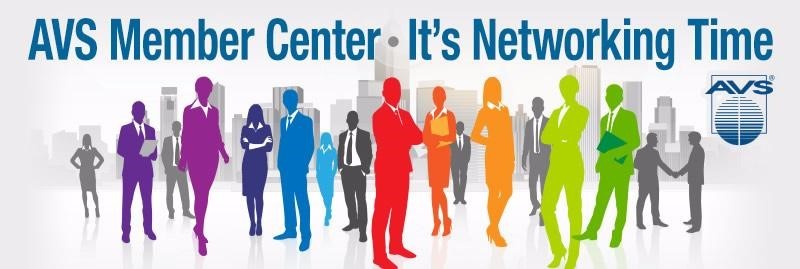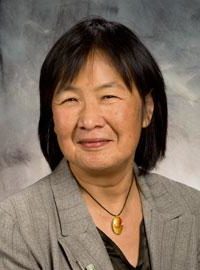Biomaterials Plenary Session (BP)
The Biomaterials Interfaces program kicks off with the now traditional Biomaterials Plenary Session. This year we are pleased to have presentations from two prominent scientists who will present their cutting-edge research on Materials and Biology for Energy Applications.
BP-SuA: Biomaterials Plenary Session: Programmable Biologic Materials (ALL-INVITED SESSION)
- Adrianne M. Rosales, The University of Texas at Austin, “Enhancing the Programmability of Engineered Extracellular Matrices with Sequence-Specific Peptoids”
- Matthew Tirrell, University of Chicago, “New Biomaterials and Bio-inspired Materials from Polyelectrolyte Complexation”
Nanoscale Science and Technology Division Plenary Session
The Nanoscale Science and Technology Division starts the week with a plenary session featuring a talk from the Nanotechnology Recognition Award winner. Following this talk, we will have our Early Career and Graduate Student competitions. Please join us for these engaging talks on nanoscale science and technology and for lively discussion during a reception, immediately after the competitions.
NSP-SuA: Nanoscale Science and Technology Plenary Session (ALL-INVITED SESSION)
- James Liddle, National Institute of Standards and Technology (NIST), “Adventures in Nanofabrication and Manufacturing, from Electron-Beam Lithography to DNA: Science, Technology, and Lessons Learned”

AVS Member Center
The Member Center will focus on career-related professional development sessions and provide networking opportunities to all attendees throughout the week. Attendees can stop in at any time to participate in our scheduled events, ask questions about how to access your membership benefits or have a place to meet up with other attendees. Be sure to stop in and network with Free Refreshments in our Member Lounge.
Exhibitor Technology Spotlight (EW)
The Exhibitor Technology Spotlight Sessions will take place in the stage area of the exhibit hall during the technical session breaks on Tuesday and Wednesday. These sessions are free and open to all registered AVS 68 attendees. This is your opportunity to learn about new products, research techniques, and services offered by AVS exhibitors. Each session is followed by a brief Q&A session making it a truly interactive learning experience. After the sessions, you may visit the presenting exhibitors at their booths to further discuss any points that you would like to receive more details on. Come learn how new technology can benefit your research efforts!
EW-TuL: Exhibitor Technology Spotlight Session
ASTM E-42 and Applied Surface Science Division Joint Workshop:
A Community Forum on Rigor and Reproducibility in Surface Analysis
Tuesday, November 8, 2022
8:00 p.m.
Join us for an evening community forum discussion on how we can address issues with poor-quality surface analysis results in publications. Part of the problem is the growing use of surface methods by those outside of the surface analysis community. Tackling this problem will require a culture change in the collection and reporting of instrument, analysis, and data information for portions of the research community. This forum will be a step in building the foundation to enable this change, but it needs a blueprint. We need your input as members of the surface analysis community to help us identify the necessary information, how to organize it, and finally, how to ensure that the information is readily available to those that advise, review, and publish.
Our panel will have representation from industry, academia, and the publishing community as well as multiple career stages. We hope to have a lively discussion focused on ensuring that the high level of surface analysis results that our AVS community employs is understood and accessible by the ever-broadening user base of surface analysis techniques.
Presenters
- Matt Linford – Brigham Young University
“Reproducibility in surface analysis—The Nature of the Problem.” - Don Baer – Pacific Northwest National Laboratory emeritus
“Reproducibility in surface analysis – Addressing the Problem.”
Panel Moderator – Don Baer
Panelists: Alex Shard (NPL), George Major (BYU), Jeff Terry (IIT), Sally McArthur (Deakin U)
.
AVS Quantum Science Workshop on ``Quantum Computing for Accelerating Chemistry Discovery``
Friday, November 11, 2022, in conjunction with AVS 68.
The power of chemistry lies in the ability to synthesize matter that can address critical needs. This power is challenged by the complexity of molecule formation and interaction and the need for fundamental understanding of both to enable chemical engineering. Accelerating chemical engineering can lead, for instance, to a faster identification of promising drug candidates.
Addressing this challenge is the aim of computational chemistry, which uses computer modeling to predict how molecules behave by simulating them to understand their properties and how they interact within a large system of molecules. This new approach of chemical engineering requires large computational power for data management, statistical and machine learning, or visualization. Understanding molecular interactions requires in addition powerful molecular dynamic engines that require outstanding computational speeds.
Though the application of quantum mechanics, quantum computers have the capacity to drastically accelerate and optimize chemical engineering, though quantum machine learning or thanks to quantum-accelerated methods. This raises today very high interest, both in academia and industry. This workshop will gather many key experts in this field and will provide a large overview of the recent progress in quantum computer assisted chemistry.
Invited Speakers:
• Marco Barbieri (Uni Rome), “Tests of Quantum Hardware: Taking Hints from Machine Learning”
• James Freericks (Georgetown), “Strategies for Computing Electronic structure of Molecules on Quantum Computers”
• Mark Saffman (University of Wisconsin), “Running Quantum Circuits on a Neutral Atom Quantum Computer”
• Andre Schleife (University of Illinois Urbana Champaign), “Electronic Excitations of Defects in Semiconductors – First-Principles Simulations and Quantum Embedding”


